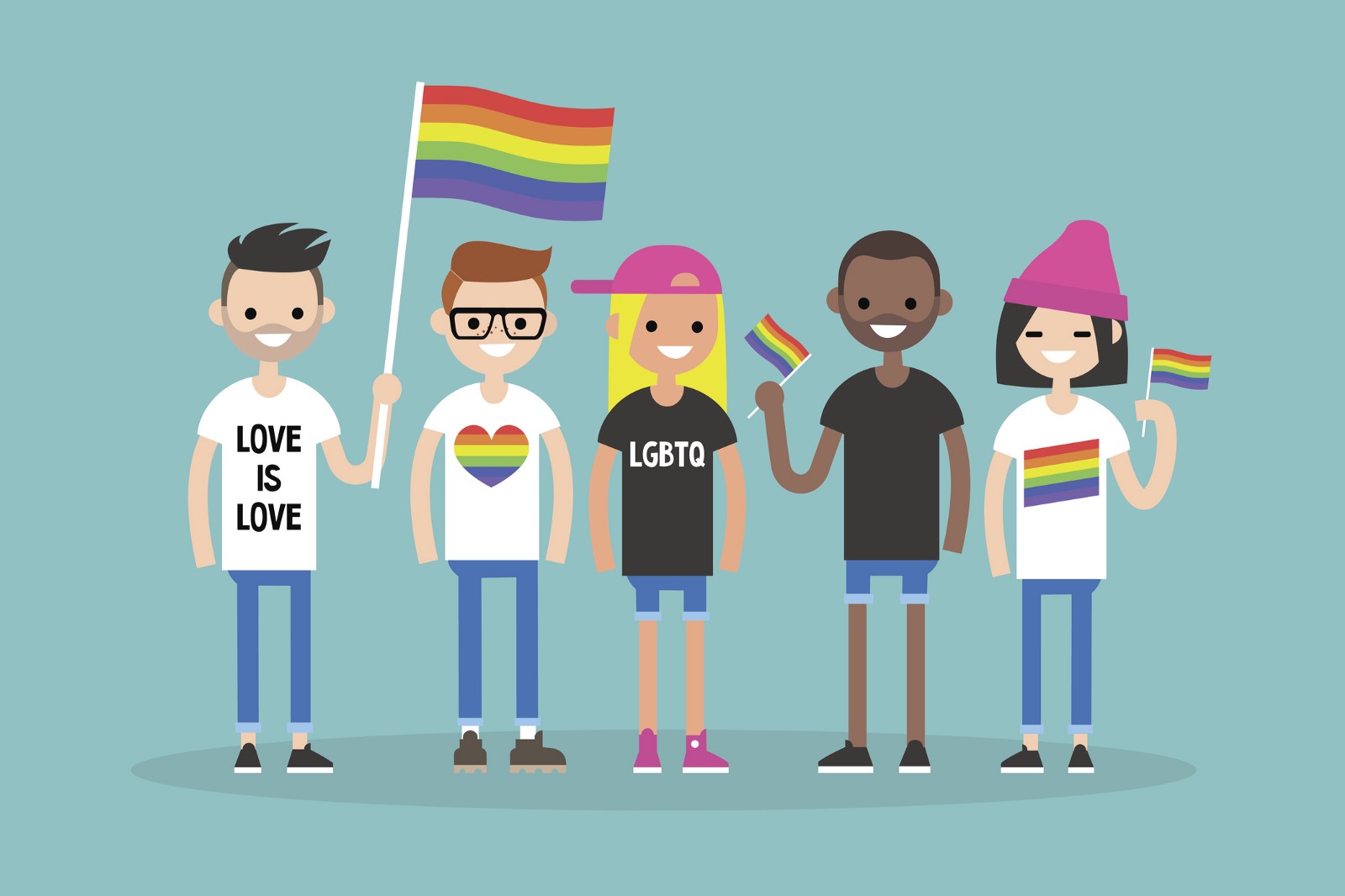Even in 2018, after so much progress has been made for global LGBTQ rights, the fight for equality and acceptance is far from over. For every area of the world that takes two steps forward, another takes a step back. It’s no surprise that the societies that have seen the greatest advancement in LGBTQ rights are the same ones that have embraced technology as a means of progress and that’s while we will talk about blockchain for good.
Among the most promising technology with the potential to be used for good is the open source format behind blockchain technology. The possibilities presented by it are unlimited. Putting it simply, blockchain is an electronic ledger that securely stores personal information. However, unlike traditional storage, which is generally controlled by a single entity such as a bank, a government, or a corporation, the information held in blockchain ledgers is accessible to anyone with an Internet connection, and anyone can add to it. This by nature becomes a foundational aspect allowing blockchain4good. Because it is decentralized and offers full transparency in an open source system, it’s extremely difficult to hack and information is far more secure than it would be on a traditional server.
Look at the recent and ongoing problems Facebook has had with compromising the data of its millions of users. The data was easy to steal as it was public and centralized, held entirely by a single corporation. As the dangers of storing personal data in a centralized way become increasingly less theoretical and more realistic, open source technology is rapidly becoming the more attractive option for many organizations and movements that seek to change the world for the better.
With the open source model of blockchain, there is no risk of personal data being compromised. When identities are protected as they are with blockchain, suddenly, open source technology becomes a tool to use in a number of areas in which one’s identity being compromised could spell both personal disaster and disaster for whatever cause is being supported. Grassroots movements supporting LGBTQ initiatives in countries where being part of that community is still grounds for social ostracization or even legal punishment — including death — would be able to conduct their business more actively and freely once the threat of being outed goes away.
Likewise, organizations or groups that stand in opposition to a dictatorship or corrupt regime run the risk of being silenced, jailed, or worse. Take, for example, the ongoing narrative of Russian businessman Alexei Navalny’s struggles to oppose Vladimir Putin in a free and non-corrupted election. He has been thwarted at every turn, arrested after every protest, and citizens discouraged from openly supporting him under threat of imprisonment. The private, protected nature of an open source ledger would enable grassroots organizations like Navalny’s supporters to operate and grow without the fear of being exposed.
Speaking of politics, imagine what might happen for democracy if liquid democracy — otherwise known as delegative democracy — became the norm. With liquid democracy, citizens can vote directly on an issue or elect a representative to vote for them. It’s similar to what we have in place, but if the last few years have shown anything, it’s that voting systems are all too easily hacked, corrupted, and compromised. Voter fraud has been a huge topic in the news in the last few years, particularly in the United States. One side has repeatedly theorized there are millions of people out there casting fraudulent votes and voting multiple times in political elections, and the other has provided multiple examples of times that registered, legal voters have been thwarted at the voting booth or turned away because of a trumped up technicality.
But open source voting would eradicate both the unfounded worry of voter fraud and the valid worry of voter manipulation. If every citizen were registered on an open source blockchain, their information would be controlled by themselves alone, unhackable, unduplicatable, and unable to be invalidated come voting time. With this open source model, electoral fraud will, quite literally, no longer be possible, another example of blockchain for good.
The beautiful transparency of open source ensures that the details of one’s personal data are kept secure while allowing for the public to keep track of transactions from start to finish. In doing so, those in power are held accountable, from the electoral voting process, to assuring a corporation’s practices are held to a certain standard of legality, to a nonprofit organization being able to show its donors exactly where their charitable donations are going. Paper and pen records and centralized digital records are too easily corrupted and changed, but that threat of tampering disappears in switching to open source blockchain. It’s exactly this unique hybrid of personal identity protection married to public transparency that will be at the heart of those organizations seeking to be catalyzing forces of good in the world.
Do you have more thoughts on #blockchain4good? Tweet at @LGBT_token
